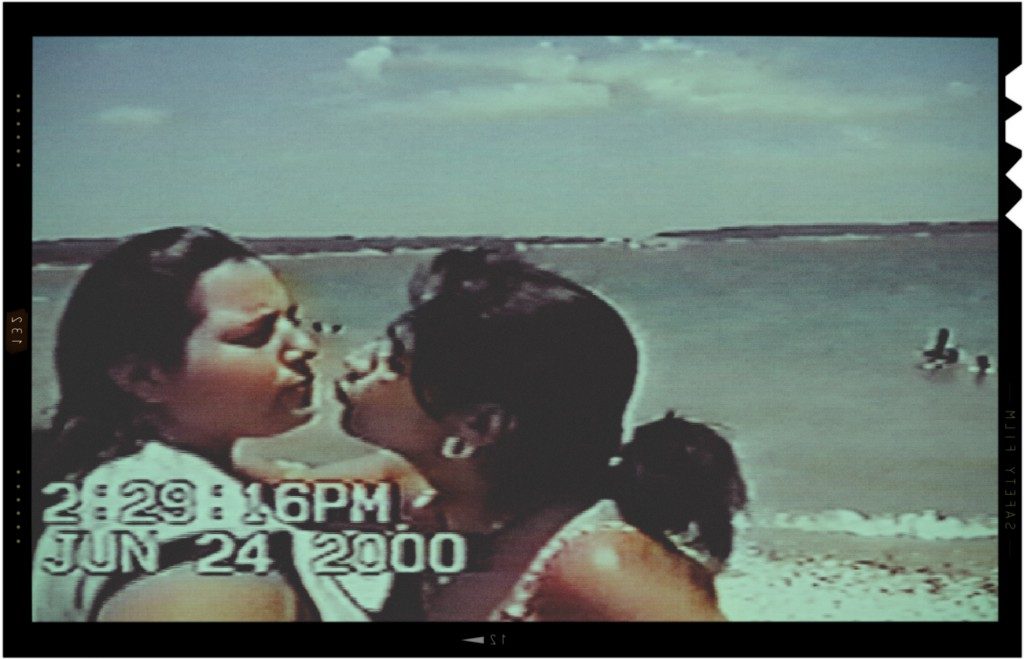Deborah S. Esquenazi is an Austin-based documentary filmmaker, radio producer, instructor and journalist. Her work explores the intersections of mythology and justice, identity and power. Esquenazi is a 2015 Sundance Creative Producing Lab Fellow, 2015 Firelight Media Producers’ Lab Fellow and an artist on two 2015 Artplace America commissions. She was also a Sundance Documentary Film Fellow in 2014. (Press materials)
“Southwest of Salem: The Story of the San Antonio Four” will premiere at the 2016 Tribeca Film Festival on April 15.
W&H: Describe the film for us in your own words.
DSE: “Southwest of Salem” is a true crime documentary about the bizarre trials and wrongful convictions of the so-called “San Antonio Four” — Anna, Cassie, Liz and Kristie — who were indicted in the mid-90’s for the alleged gang rape of two little girls. The film is a re-investigation into their case; we also tackle some deep-seated homophobia and misogyny at the root of the highly-sexualized trials of the alleged ringleader of this crime, Liz Ramirez. By the time I came in to reinvestigate their case, the women had been languishing in prison for nearly a decade.
W&H: What drew you to this story?
DSE: I learned about this story from my friend, veteran investigative journalist Debbie Nathan. I also read about their story in the San Antonio Express-News. A reporter named Michelle Mondo did a stellar job outlining the bizarre allegations waged against the four defendants.
However, I knew I wanted to pursue the making of a film when Debbie Nathan sent me a VHS tape recorded by the women in the late-90s. This was heart-wrenching and provocative imagery shot just before the women turned themselves into authorities to begin their prison sentences. That tape helped form the foundation of the film you see on screen.
W&H: What do you want people to think about when they are leaving the theater?
DSE: “Southwest of Salem” is fast-paced with several plot twists. A lot unfolds in this emotional film. Yet, my hope is that you will catch some of the underlying mythologies and intersectional themes that play out underneath it all, particularly in the way in which the women were portrayed by overzealous prosecutors and how they were represented during a cultural hysteria — the Satanic sexual abuse panic of the 1980’s and 1990’s.
My hope, more than anything, is that this massive injustice sticks with people as they leave the theater and they will be inspired and become impassioned to join our exoneration campaign.
W&H: What was the biggest challenge in making the film?
DSE: This film took five years to make. That’s not uncommon in the world of documentary. This film, in particular, had quite a few plot twists and surprises, so I think the big challenge was having the funding and stamina to stay with the filming and the story. Obviously, I am so glad I did!
W&H: How did you get your film funded? Share some insights into how you got the film made.
DSE: The film is mostly funded by my incredible partners: the Sundance Institute in association with JustFilms Ford Foundation and Open Society Foundation, Chicken & Egg Pictures, Firelight Media, The Kindle Project, Astraea Global Arts Fund, Arcus Foundation and Austin Film Fund, to name a few. My producer, Sam Tabet, also brought in finishing funds. Very early into filming we had a successful Kickstarter.
Overall, I was very lucky to have funders who came in with second and third-time funding opportunities, like Sundance and especially Chicken & Egg, where we received three grants. That’s incredible — I don’t take their generosity for granted!
W&H: What’s the best and worst advice you’ve received?
DSE: The best advice is any advice that shows the silver-lining to any problem — because there always is one! My producer Sam and my EP Julie Goldman are two women who totally see the silver lining.
The worst advice I have heard is well-meaning but oftentimes negative talk about how hard “the industry” is and how challenging getting a film out into the world is. Yes, it’s challenging and there are certainly many bumps. But it’s also deeply rewarding when you can watch something you created with your team and are proud of the work. That’s how I feel about this film.
I feel very proud and honored to get to be the one to tell the story of four remarkable, courageous heroines.
W&H: What advice do you have for other female directors?
DSE: To My Lady Colleagues: we must remember our voices deserve to be heard.
W&H: Name your favorite woman-directed film and why.
DSE: Oh my, I have so many! And they are all so different and sort of random! “Fire” by Deepa Mehta comes to mind first.
I love “Paris is Burning” by Jennie Livingston, “Shut Up & Sing” by Barbara Kopple and Cecilia Peck, “The Gleaners and I” by Agnès Varda, “Boys Don’t Cry” by Kimberly Peirce, “Yentl” by Barbra Streisand and an old favorite that I’ve seen a million times is “Desert Hearts” by Donna Deitch.







